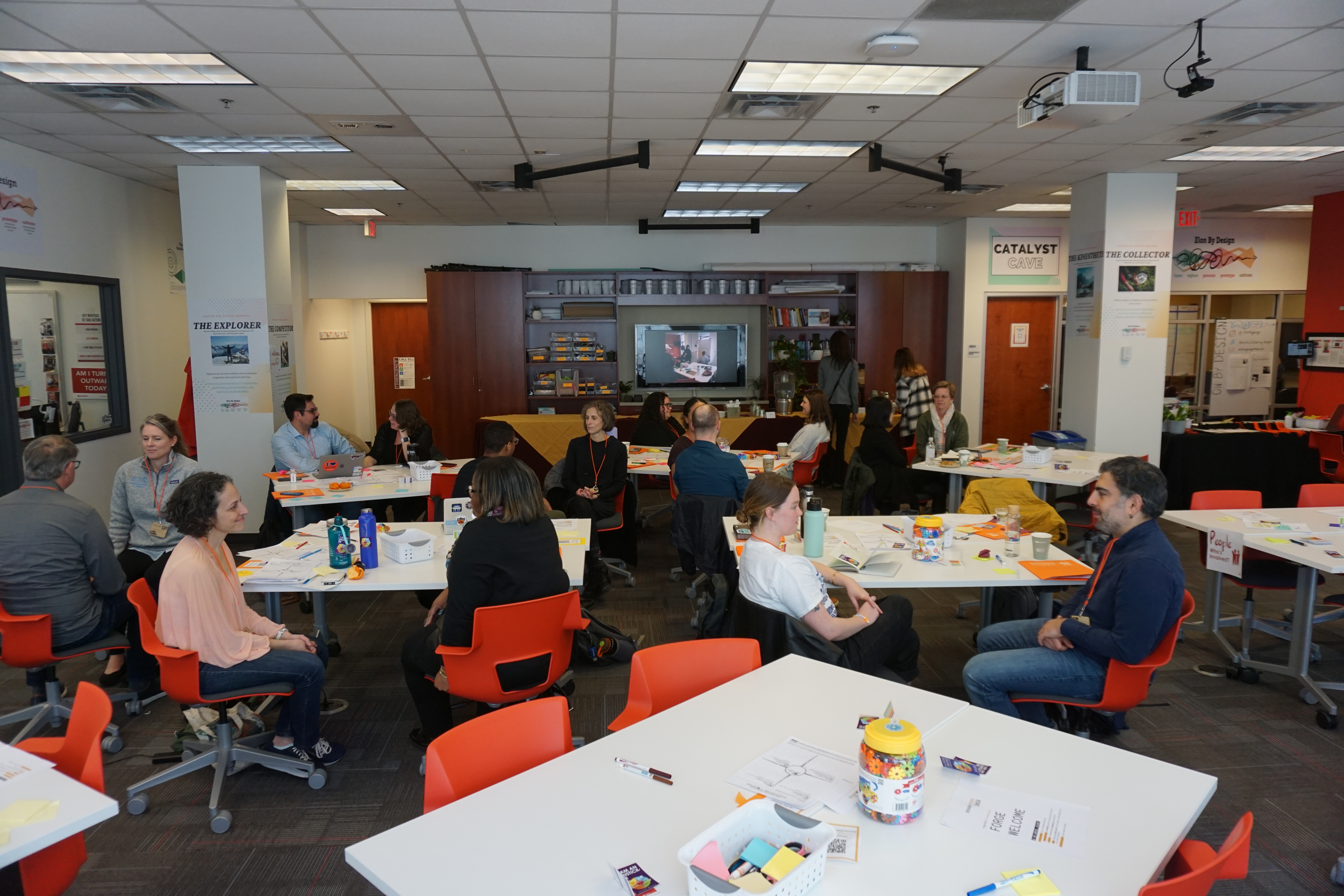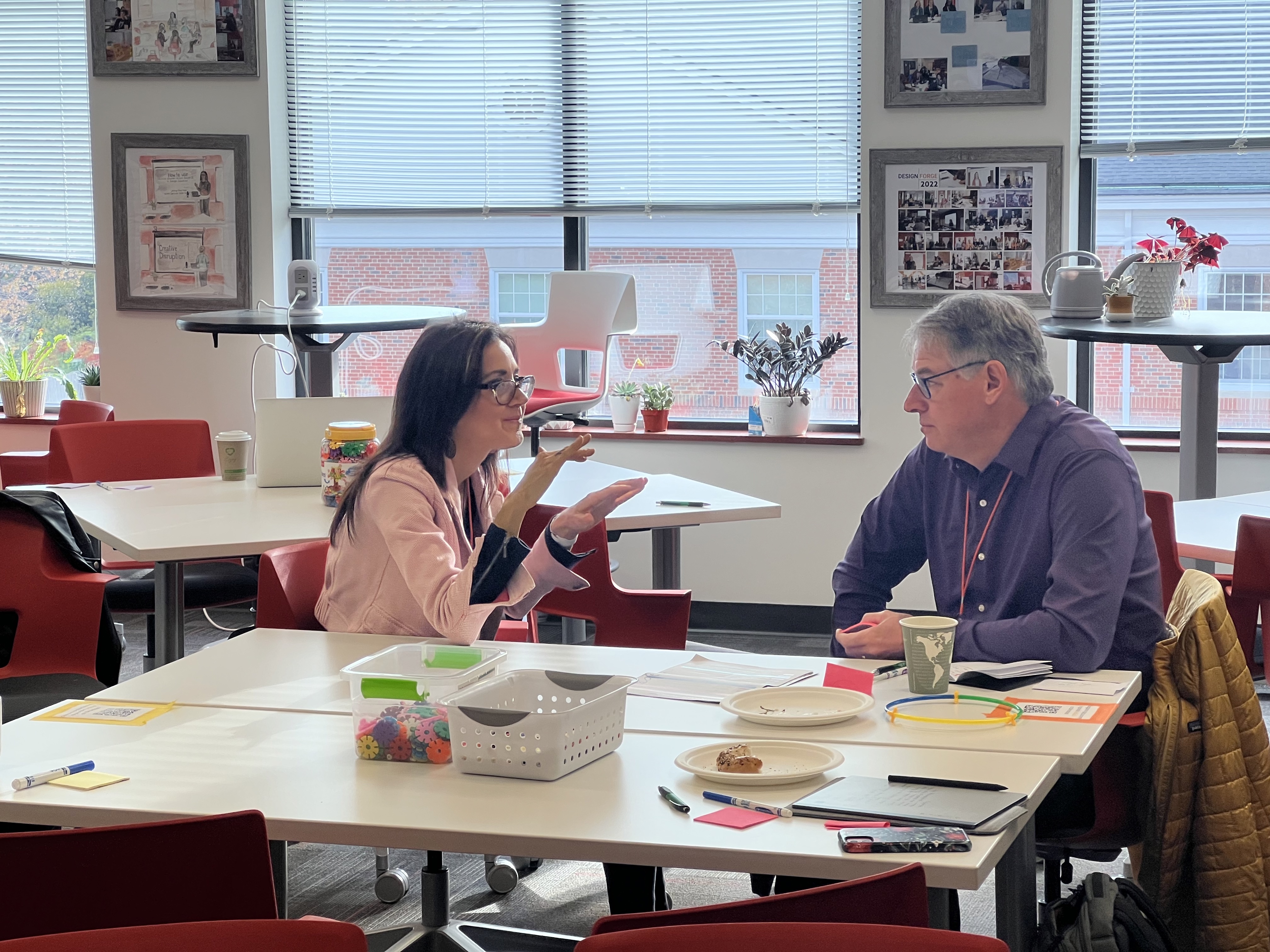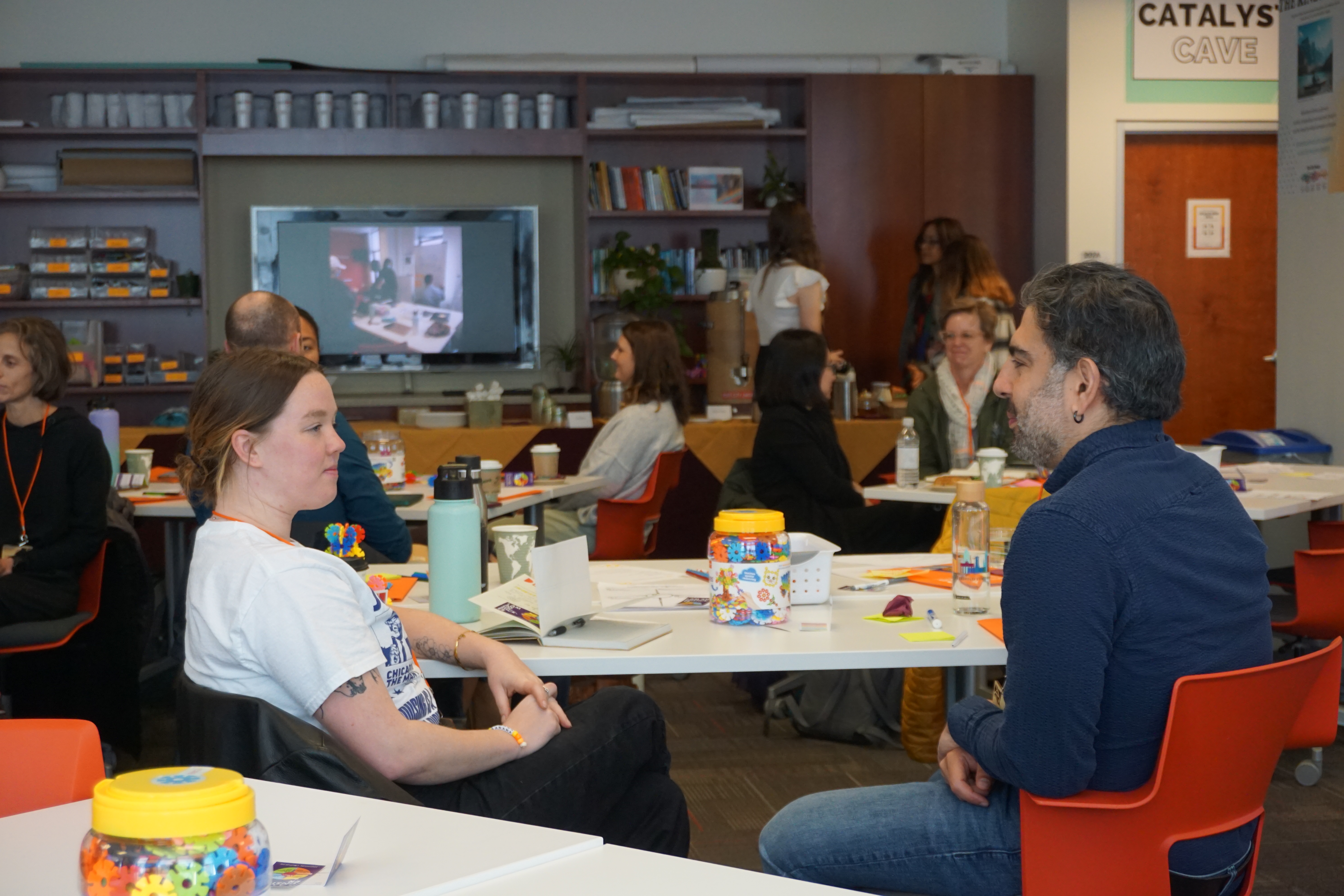Design thinking experts gathered at the Center for Design Thinking for the two-day conference.
Leaders in the field of design thinking gathered in person at the Center for Design Thinking and virtually on March 30 and 31 to discuss the role of intergenerational design thinking at this year’s Design Forge conference.
Over the two-day conference, attendees were able to share their own stories and strategies regarding intergenerational design thinking and connect with others focused on the area as well. Intergenerational design thinking relates to the collaboration of people from different generations in all areas for the betterment of society.
 “We’ve been using this time and space to address a lot of different critical issues. Each year, the vision is different … and I’m honored, this year, to focus on the role of intergenerational design,” said Danielle Lake, director of Design Thinking at Elon. “Two of the strongest concerns about design is its lack of situating itself in place and failure to understand the histories and long-term futures of what we’re designing.”
“We’ve been using this time and space to address a lot of different critical issues. Each year, the vision is different … and I’m honored, this year, to focus on the role of intergenerational design,” said Danielle Lake, director of Design Thinking at Elon. “Two of the strongest concerns about design is its lack of situating itself in place and failure to understand the histories and long-term futures of what we’re designing.”
On day one of Design Forge, Ela Ben-Ur delivered the visioning keynote. Ben-Ur is the founder of the Innovators’ Compass, a method of asking five “powerful questions” which can help people navigate various challenges. Ben-Ur’s keynote was interactive, asking participants to work through the Innovators’ Compass on a particular issue they were facing.
Associate Professor of Geography Sandy Marshall led a session during the first day on Place-Based Storytelling as Participatory Design Practice. During his session, Marshall made note of his work with the Power and Place Collaborative — a partnership between Elon, the African American Cultural Arts and History Center and Burlington’s Mayco Bigelow Community Center which strives to preserve and present stories from and about people and places in Alamance County’s Black communities.
 “Part of our vision is to start to pop some of these bubbles to create connections to valorize and hear the stories of communities and the rich histories but also to surface some of these problems and tensions and thinking how can we undo some of these damages that have been done,” Marshall said.
“Part of our vision is to start to pop some of these bubbles to create connections to valorize and hear the stories of communities and the rich histories but also to surface some of these problems and tensions and thinking how can we undo some of these damages that have been done,” Marshall said.
The Design Forge concluded with a closing keynote workshop, titled “Designing Futures: Social Science and Design for Intergenerational Centers,” with Raja Schaar, program director of Product Design at Drexel University.
Recordings and presentation slides from the two-day event can be found on the Design Forge website.



